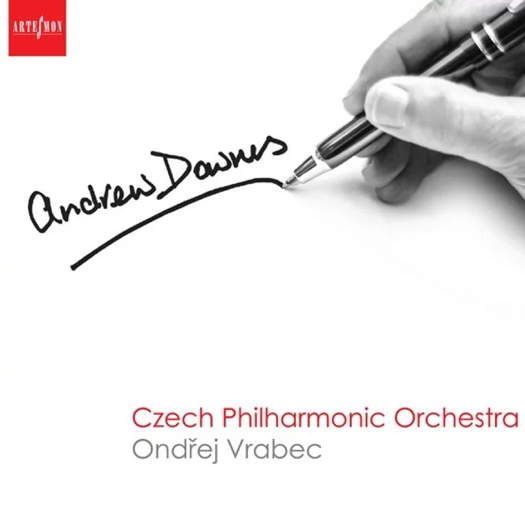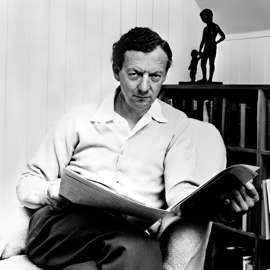 SPONSORED: CD Spotlight. On Buoyant Form - Orchestral music by Andrew Downes, heard by Roderic Dunnett.
SPONSORED: CD Spotlight. On Buoyant Form - Orchestral music by Andrew Downes, heard by Roderic Dunnett.
All sponsored features >>
- syrinx
- Pyotr Il'yich Tchaikovsky
- David Fanshawe
- Pjotr Iljitsch Tschaikowsky
- Claudio Scimone
- L'Italiana in Algeri
- David Rossel
- Sisters OR
 SPONSORED: Ensemble. Last Gasp of Boyhood. Roderic Dunnett investigates Jubilee Opera's A Time There Was for the Benjamin Britten centenary.
SPONSORED: Ensemble. Last Gasp of Boyhood. Roderic Dunnett investigates Jubilee Opera's A Time There Was for the Benjamin Britten centenary.
All sponsored features >>
Jack Brymer
'... he was really great. I had the privilege of doing the E flat Brahms with him at Presteigne which he mentioned when we talked on subsequent occasions. Didn't need to rehearse, it just flowed out. I remember thinking it was the hallmark of his great musicianship that he could go on stage with musicians he didn't know at all with hardly any rehearsal and it would seem as if they'd been playing together for years.' - Adrian Williams
Born in South Shields on 27 January 1915, British clarinettist, teacher and author Jack Brymer studied at Goldsmiths College in London, married in 1939, just after the outbreak of war, and the couple had one son.
He gave his first BBC recital in 1947, and in the same year was invited by Beecham to join the newly-created Royal Philharmonic Orchestra. He then held a series of principal clarinet posts, leaving the RPO in 1963 to work with the BBC Symphony Orchestra (1963-71) and then the London Symphony Orchestra (1971-86). He was a member of the Promethius Ensemble, the Wigmore Ensemble and the London Baroque Soloists, and he also played jazz.
He played the major classical repertoire, most notably Brahms, Mozart, Stanford and Weber, and recorded most of the major works for clarinet, including three versions of the Mozart Clarinet Concerto. As director of the London Wind Soloists he made a series of successful recordings.
He also taught, as a professor at the Guildhall School of Music, the Royal Academy of Music and at the Royal Military School of Music at Kneller Hall, and he gave masterclasses in Australia, mainland Europe, Canada and the USA.
Brymer's two books, The Clarinet: From where I sat and In the orchestra describe his life as an orchestral player.
He was awarded the OBE in 1960, was president of the Incorporated Society of Musicians and received several honorary academic degrees.
Jack Brymer died on 15 September 2003, aged eighty-eight.

